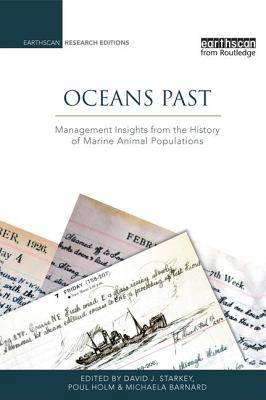
- Retrait gratuit dans votre magasin Club
- 7.000.000 titres dans notre catalogue
- Payer en toute sécurité
- Toujours un magasin près de chez vous
- Retrait gratuit dans votre magasin Club
- 7.000.0000 titres dans notre catalogue
- Payer en toute sécurité
- Toujours un magasin près de chez vous
Description
�[A] fascinating volume, which establishes marine environmental history as a major new discipline for academics as well as an exciting way to bring history and the natural world alive for the public.�
ANDREW A. ROSENBERG, UNIVERSITY OF NEW HAMPSHIRE
�The HMAP project is to be congratulated on this book, which presents vivid, evidence-based reconstructions of historical fisheries and the prolific ecosystems in which they were embedded.�
TONY J. PITCHER, UNIVERSITY OF BRITISH COLUMBIA
�The ingenuity and scholarship of the authors allow us to see ... how human societies have depended on and influenced marine living resources from periwinkles to whales.�
MIKE SINCLAIR, BEDFORD INSTITUTE OF OCEANOGRAPHY
�This book exalts the surprisingly fruitful marriage of historians and marine scientists - a union that has proven to be one of the most exciting developments in ocean research in recent years.�
KATHERINE RICHARDSON, UNIVERSITY OF COPENHAGEN
For centuries the seas appeared to offer limitless supplies of food and other resources, their waters a cornucopia never to be exhausted. In more recent times, episodes such as the extreme exploitation and subsequent collapse of cod populations of the Grand Banks off Newfoundland have highlighted the fallaciousness of this view. Yet all too often the lessons from our historical interactions with marine animals are little known, let alone learned.
Based on research for the History of Marine Animal Populations project, Oceans Past examines the complex relationship our forebears had with the sea and the animals that inhabit it. It presents eleven studies ranging from fisheries and invasive species to offshore technology and the study of marine environmental history, bringing together the perspectives of historians and marine scientists to enhance understanding of ocean management of the past, present and future. In doing so, it also highlights the influence that changes in marine ecosystems have upon the politics, welfare and culture of human societies.
Spécifications
Parties prenantes
- Auteur(s) :
- Editeur:
Contenu
- Nombre de pages :
- 256
- Langue:
- Anglais
- Collection :
Caractéristiques
- EAN:
- 9781138977396
- Date de parution :
- 01-02-16
- Format:
- Livre broché
- Format numérique:
- Trade paperback (VS)
- Dimensions :
- 156 mm x 234 mm
- Poids :
- 362 g

Les avis
Nous publions uniquement les avis qui respectent les conditions requises. Consultez nos conditions pour les avis.






